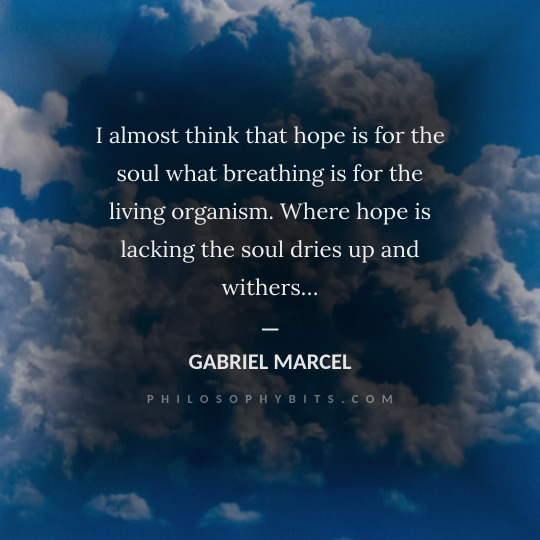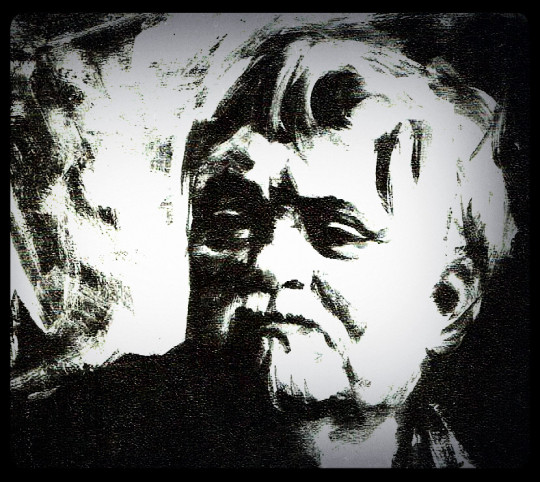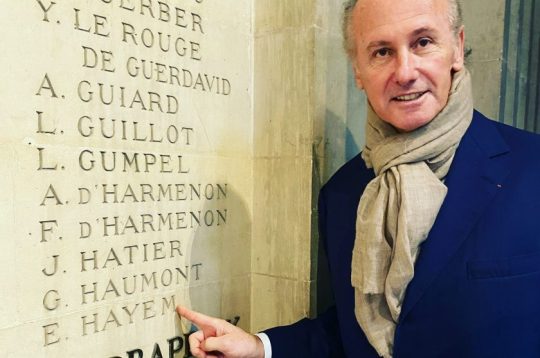#homo viator
Explore tagged Tumblr posts
Text

13 notes
·
View notes
Text

«Quizás no hay error más funesto que el que consiste en concebir el yo como el reducto o la guarida de la originalidad. Para comprenderlo mejor hay que hacer intervenir aquí la noción injustamente desacreditada de los dones. Lo mejor de mí no me pertenece, no soy en absoluto su propietario, sino sólo depositario. No tiene ningún sentido preguntarse, a no ser en un registro metafísico que actualmente ya no es el nuestro, de d��nde vienen estos dones, cuál es su procedencia. Por el contrario, lo que importa de entrada es saber qué actitud adoptaré ante ellos. Si los miro como un depósito que estoy obligado a hacer fructificar, es decir, en el fondo como la expresión de una llamada que me ha sido dirigida, o incluso a veces como la expresión de una cuestión que se me ha planteado, no pensaré en enorgullecerme por ello y en pavonearme delante de otros, es decir, de nuevo ante mí mismo.»
Gabriel Marcel: «Yo y el otro», en Homo viator. Editorial Sígueme, pág. 31. Salamanca, 2005.
TGO
@bocadosdefilosofia
@dias-de-la-ira-1
#marcel#gabriel marcel#homo viator#yo y el otro#existencialismo#filosofía conemporánea#originalidad#don#dones#yo#teo gómez otero
5 notes
·
View notes
Text

276 days until submission
Golden rays of sunlight = I get to skip vitamin D supplementation today.
I betrayed my secret to making pizza dough exquisite (mix tipo 00 flour with wholewheat 9:1) which provoked an unexpected reaction ('so that's why your pizza always tastes like B R E A D')
Also, it's NYE today but I feel to old to stay awake 'til midnight.
3 notes
·
View notes
Text
Oda al paseo y al paseante: Baudelaire, Debord y la ciudad
Escrito por Pilar R. Laguna Hay dos tipos de personas, las que pasean y las que no. Salvo causa mayor que se lo impida, reconozco mi profunda incomprensión hacia las segundas. El paseo es esencialmente humano, o eso me gusta pensar, y cuando no lo practicamos es como si estuviéramos negando una parte sustancial de nuestra esencia. No hablo del desplazamiento funcional, hablo del relajado,…

View On WordPress
#Arquitectura#Charles Baudelaire#Cinéma#Créativité#Escrita#Gustave Flaubert#Homo viator#Informació#Jorge Luis Borges#Lecture#Librerías#Lucidesa#Poésie
0 notes
Text
when the character you based on literature develops a story that unintentionally plays into its themes

#*suddenly jerks awake* giewont is a homo viator#me when the whole world is my home but i have no home in the whole world
7 notes
·
View notes
Text
Back again at the same Asian food place i do to when traveling. A rest stop for travelers. A shrine in the road. It's not even liminal - it's the opposite of that. It's everywhere, at once, homely in its nowhereness.
3 notes
·
View notes
Text
- Czy homo viator to cecha?
- Nie, pisze się przez 'h'
7 notes
·
View notes
Text
‘I spoke of the soul. This word, so long discredited, should here be given its priority once more. We cannot help seeing that there is the closest of connections between the soul and hope. I almost think that hope is for the soul what breathing is for the living organism. Where hope is lacking the soul dries up and withers; it is no more than a function, it is merely fit to serve as an object of study to a psychology that can never register anything but its location or absence. It is precisely the soul that is the traveller; it is of the soul and of the soul alone that we can say with supreme truth that "being" necessarily means "being on the way" (en route).’
— Gabriel Marcel: “Preface”, Homo Viator: Introduction to the Metaphysic of Hope
2 notes
·
View notes
Text
Nerval, el homo viator

Por Claude Bourrinet
Traducción de Juan Gabriel Caro Rivera
Sólo los ignorantes o los necios seguirán considerando a Nerval un escritor menor. Durante mucho tiempo se le considero un marginal dentro de la gran literatura, no sólo en los manuales sino también por parte de la crítica. Hay razones para este desprecio y no derivan únicamente de los defectos del literato. En la posteridad, Nerval fue tan destemplado como en vida. Encarnó la esencia de la literatura, que es el exilio, en una especie de pureza espantosa que le condujo a una muerte sórdida.
Porque no sólo ilustró, en Francia, un movimiento romántico que, en realidad, no era homogéneo, sino que perteneció a una corriente, a una tradición, que iba más allá de un siglo XIX tan estúpido como el nuestro. Fue un antimodernista, como la mayoría de los escritores «malditos» de esta época cientificista e industrial, que reconocía abiertamente, con angustia mortal, la muerte de Dios. Expresaba una profunda revuelta que iba más allá de la intoxicación ideológica.
Estuvo influido por el romanticismo alemán, mucho más profundo que el francés, que tendía a ser histórico y político, y que hasta cierto punto caía en un humanitarismo benigno. Probablemente nunca leyó a Fichte, iniciador del idealismo alemán, pero sí conoció a Novalis, Brentano y Hoffmann. El yo es un universo, es el universo, el mundo. La búsqueda de Nerval, desde el arrebato de locura que le lanzó hacia la Étoile el 23 de febrero de 1841, y tras su fracaso en Oriente en 1843, se volvió interior. Allí encontró lo divino, y el cosmos (y se unió a Goethe en este camino, y al segundo Fausto, el que invoca a las Madres). El universo es un todo, que contiene y, al mismo tiempo, es contenido. Con Nerval desaparecen las fronteras entre la vida vernácula y esa segunda vida, tan real como la primera, que es el sueño. Allí vaga por un mundo de múltiples laberintos existenciales, en busca de sus orígenes, de la patria mística que le otorga identidad (habiendo creído, por un momento, haberla encontrado en su infancia, una anamnesis errante que le hacía rondar los paisajes de su Valois natal. La esencia del Paraíso, como diría Proust, es perderse para siempre). Tal vez su condición de homo viator sea, de hecho, su verdadera «identidad», tanto en su primera vida como en la segunda. Si ha encontrado algo, un «sentido», sólo habrá sido teniendo que buscarlo siempre y, en última instancia, perdiéndose a sí mismo.
Su locura, una de cuyas variantes es precisamente la dromomanía, el gesto irrisorio de la búsqueda, no debe verse sólo como la manifestación de una patología – que, por supuesto, en parte lo es –. El surrealismo, que continuó lo que Nerval había comenzado, la vio como una iniciación a la vida real. La vida sin locura no es más que un esqueleto sin carne ni alma. Vivimos tanto en una dimensión «material», social, prosaica, como en un sueño que se despliega, según las dimensiones de nuestro ser, nuestra capacidad de recibir «poéticamente» el encanto del mundo, como un soplo primaveral que se cuela por la ventana. Y la escritura, es decir, la literatura, es la inscripción encantadora, que «canta», que prodiga el carmina, pero a menudo, en el caso de Nerval, un canto singularmente claro, «clásico», de una tonalidad límpida, «francesa», rara vez sujeta a erupciones de lava cainita, cuando la lava perfora la corteza del lenguaje «civilizado».
La escritura es mágica. Es algo más que signos socializados sobre papel (o pantalla), es también un jeroglífico de secretos enterrados que hay que sacar a la luz, tal vez encontrando la «letra que falta» (de ahí las investigaciones esotéricas y teosóficas de un Nerval que se inspiró en la alquimia, la Cábala, los «Illuminés» del Antiguo Régimen, su contemporáneo Ballanche, y la noción fundamental de palingenesia religiosa, en el Orfismo, el Hermetismo, especialmente el culto a Isis, la madre-amante, que reúne lo que ha sido dislocado, recordando obstinadamente su dolorosa memoria a su madre trágicamente desaparecida). Es también un instrumento de la metanoia, de la transformación del hombre destinado a convertirse en Dios. Con Nerval, y antes que con Rimbaud, la escritura se convierte en el camino real hacia el Conocimiento. En este sentido, Nerval encarnaba al Vidente, evocado por el joven poeta con «suelas de viento» en una de sus tres cartas a Izambard. Era, en cierto modo, su Juan Bautista (aunque no hay que olvidar a Baudelaire, «el primer vidente, rey de los poetas, un verdadero Dios», según Rimbaud, que fue uno de los pocos en reconocer en Nerval a un Gran Pensador... pero, ¿había leído Rimbaud a Nerval?).
Ilustración: Michael Ayrton (británico, 1920-1992) El Desdichado, 1944 firmado y fechado (abajo a la izquierda) óleo sobre tabla.
Fuente: http://euro-synergies.hautetfort.com/archive/2025/04/17/nerval-l-homo-viator.html
1 note
·
View note
Text
Long distance gay relationship
Call that homo viator
1 note
·
View note
Text
Good versus bad tourism: Homo viator’s responsibility in light of life-value onto-axiology | Giorgio Baruchello (2015)
Extracted from: https://sci-hub.st/https://doi.org/10.4324/9781315747361 Cite as: Baruchello, Giorgio. “Good versus bad tourism: Homo viator’s responsibility in light of life-value onto-axiology.” In Tourism and the Anthropocene, pp. 111-128. Routledge, 2015. Good versus bad tourism Homo viator’s responsibility in light of life-value onto-axiology Giorgio Baruchello Homo viator A founding father…
0 notes
Text
Un incontro, potentissimo, dirompente
Mi si è avvicinata, mi ha detto che le interessava. L’aveva colpita in qualche modo, il mio racconto, le quattro cose che avevo messo in fila. Ed è iniziato un viaggio, silenzioso, avventuroso. Nessuna sfida, niente eroismo, una marea di cose, di piccoli gesti in mezzo a cose grandi. Coopera d’arte, condividere il cuore… accendeva scintille e generava incendi in mezzo alla foresta di idee e cose, varie, vaghe, imperfette. Era semplicemente una grande, si sa, che partiva, al volo, subito, senza pensieri e nessuna paura. Ma io… io una storia ce l’ho, ce l’avevo, bellissima, avvincente e quel giorno è cambiata, ha accelerato, forse addirittura è deflagrata. È entrato ossigeno, si è spalancato il cuore, sono diventato Cavallo Pazzo. Auguri, cavallo pazzo, mi ha scritto. Il mondo è diventato più grande, il cuore è diventato più capace, coraggioso, il mistero è diventato vero, umano, infinito. Homo viator, lei e io ho imparato. Facevo cose che mi chiedevano poi ne ho fatta una di mia iniziativa e in fondo a quel primo viaggio è arrivato il regalo del suo modo di guardare le cose, il mondo, la vita. Uno sguardo imperfetto? Una certezza diversa da quella che conoscevo, cose che il mio cuore credeva impossibili, invedibili, non reali. In fila, una dopo l’altra, viaggi, incontri, volti… boh. Non lo so, davvero non lo so, e il privilegio di momenti condivisi, domande, visioni, sogni, paradiso. Porti gli occhiali? Solo il venerdì. Ricordati la promessa, come quale? Di farmici salire. Mio Dio, mio Dio… e adesso? Ti ci porto, in qualche modo ti ci porto, su quel mare che mi sta insegnando a non immaginare nemmeno che da solo io… Lo sai. E te l’ho detto, timido, cosa è stato incontrarvi. Ti do del voi, del coloro. E lo giuro, ci vediamo prima che posso.

0 notes
Text

«Pero aquí se impone una advertencia capital. Por el hecho mismo de que el otro no es tratado por mí más que como una caja de resonancia o un amplificador, tiende a convertirse para mí en una especie de aparato que puedo o creo poder manipular, o del que puedo disponer; me formo una idea de él y, cosa extraña, esta idea puede convertirse en un simulacro, en un sustituto del otro, al cual me veré llevado a referir mis actos, mis palabras. Posar, en el fondo, es siempre posar ante uno mismo. «Posar para la galería», se dice familiarmente, pero la galería sigo siendo yo.»
Gabriel Marcel: «Yo y el otro», en Homo viator. Editorial Sígueme, págs. 29-30. Salamanca, 2005.
TGO
@bocadosdefilosofia
@dias-de-la-ira-1
#marcel#gabriel marcel#homo viator#yo y el otro#existencialismo#filosofía contemporánea#pose#imagen#el otro#otro#yo#caja de resonancia#posar#simulacro#manipulación#teo gómez otero
2 notes
·
View notes
Text
0 notes
Text
François Heilbronn signe le roman d’une mémoire française juive
Entretien-fleuve avec François Heilbronn à propos de son premier et passionnant roman, dans lequel s’imbriquent citoyenneté française et judaïsme. François Heilbronn au Panthéon, à Paris, devant le nom d’Emile Hayem. Propos recueillis par Félix Le Roy Ma rencontre avec François Heilbronn, professeur à Sciences Po et vice-président du Mémorial de la Shoah, a lieu dans sa bibliothèque personnelle.…

View On WordPress
#Bernard-Henri Lévy#Bibliotecas#Diálogo#Dignidad#Direitos#Ensino#Escrita#Expressões#Formation#Historia#Homo viator#Identité#Ivrit#Joseph Kessel#Literatura#Memoria#Política#Prix#Recherche#Solidaridad
0 notes
Video
youtube
조미화展(아트스텔라 소노 갤러리)_20230413
대구시 중구에 위치한 아트스텔라 소노 갤러리에서는 조미화 작가의 ‘HOMO-VIATOR’展을 진행하고 있습니다. 작가는 섬유 조직을 연상시키는 선들을 연속적으로 붙여 면을 형성하고, 주사기를 사용하여 질감을 가진 작품을 만들어냅니다. 작업은 반복성, 연속성, 균질성에 초점을 맞추며, 자기 통제와 호흡의 조절이 필요한데요, 중성적이고 세련미가 느껴집니다. 많은 관람 바랍니다.^^(~5월 14일, 아트스텔라 소노 갤러리), http://www.artv.kr/?p=9535
0 notes